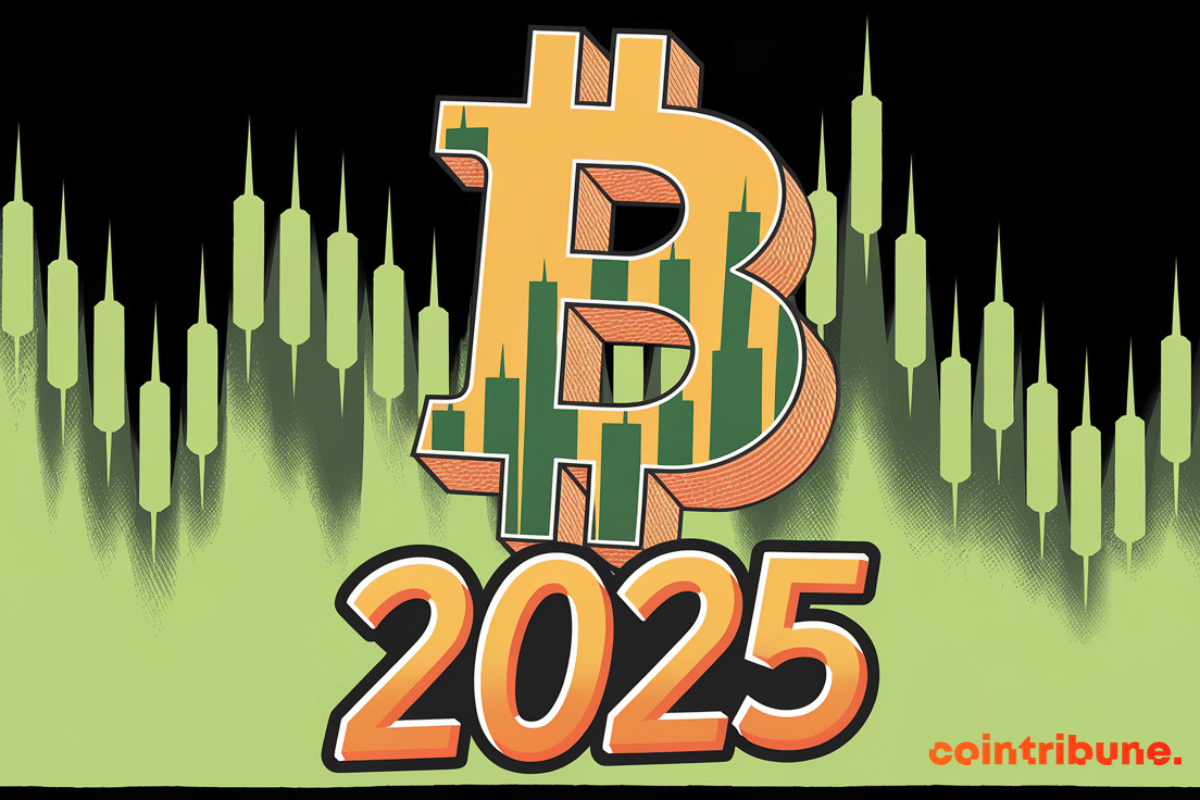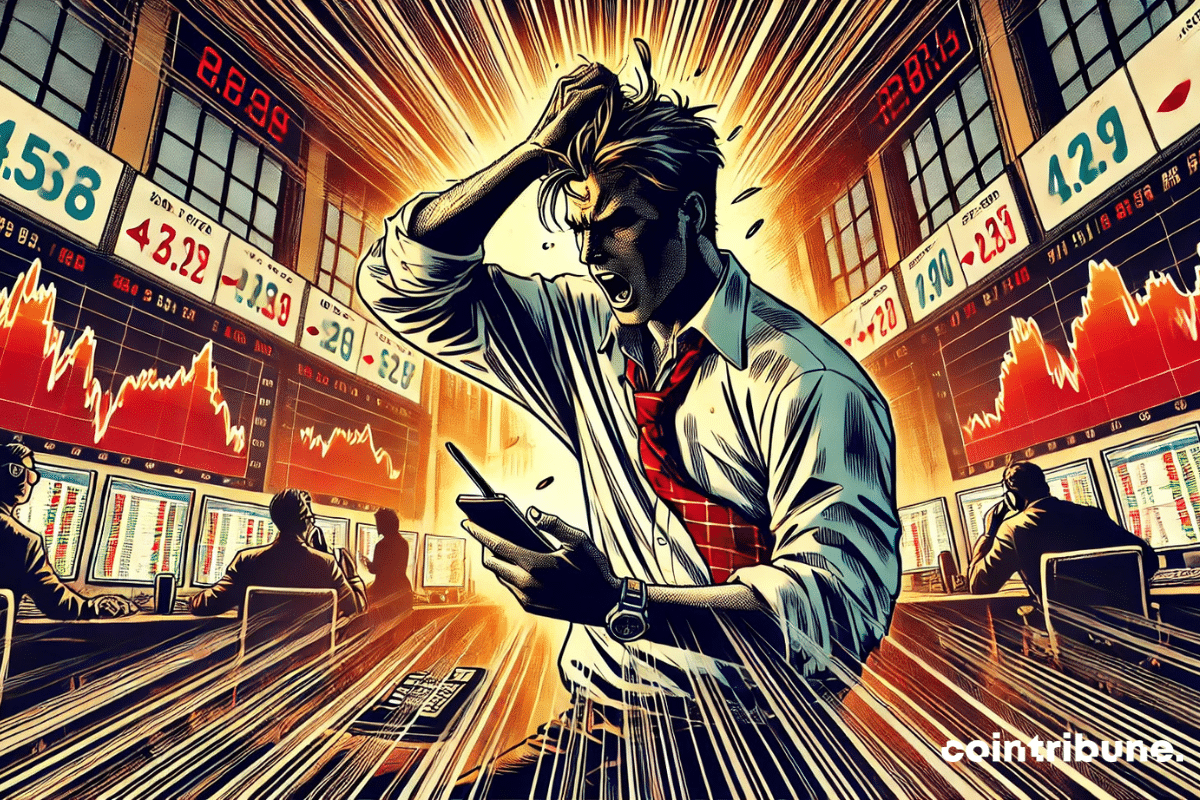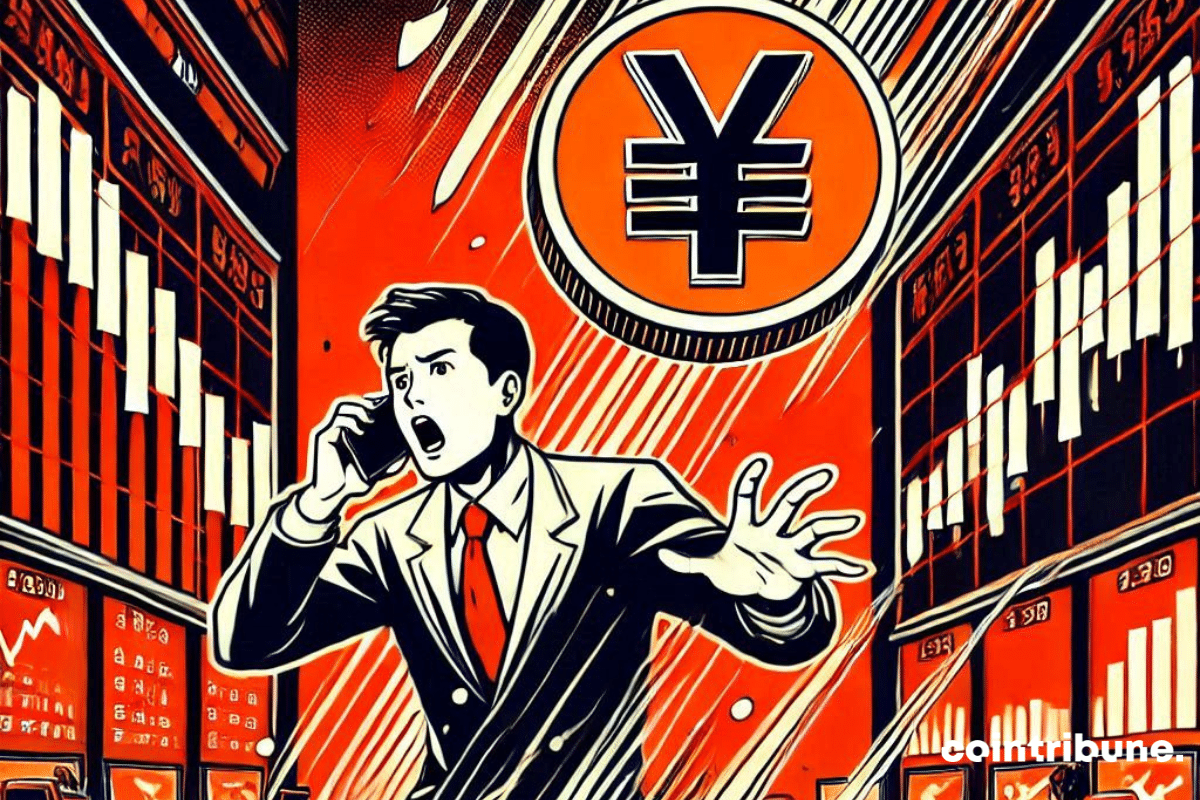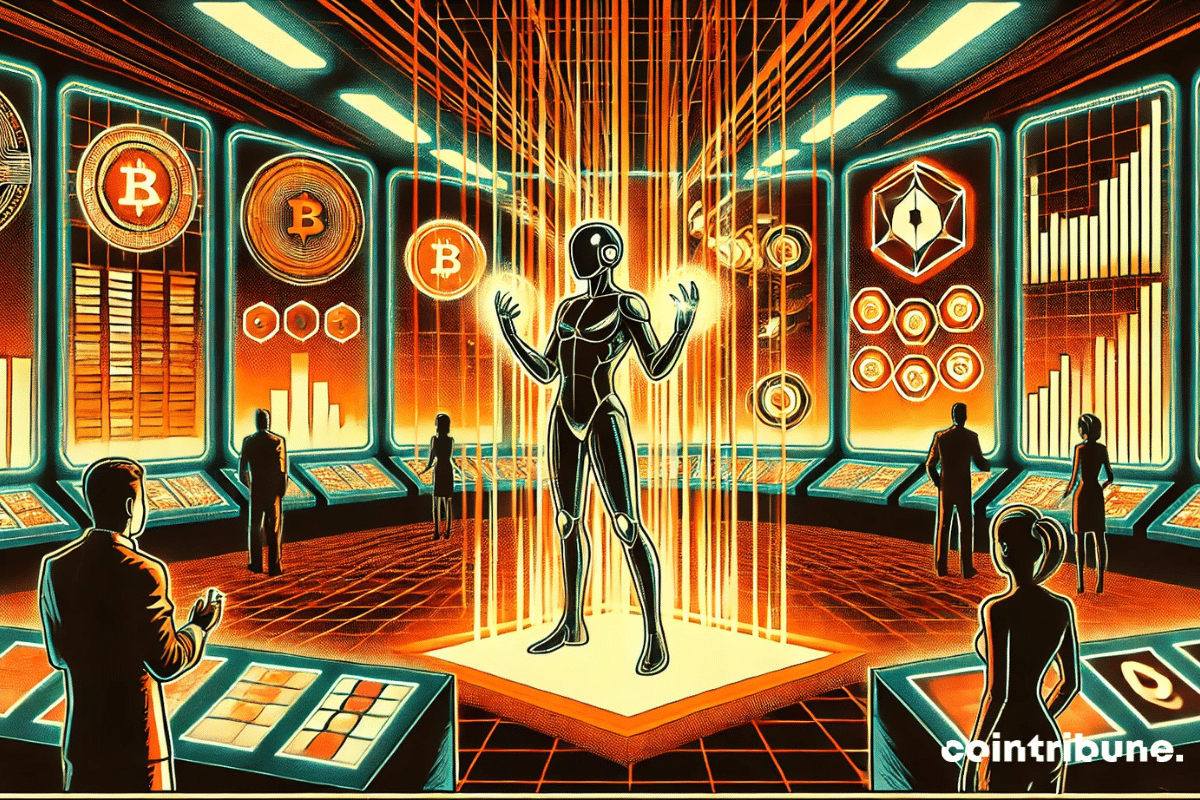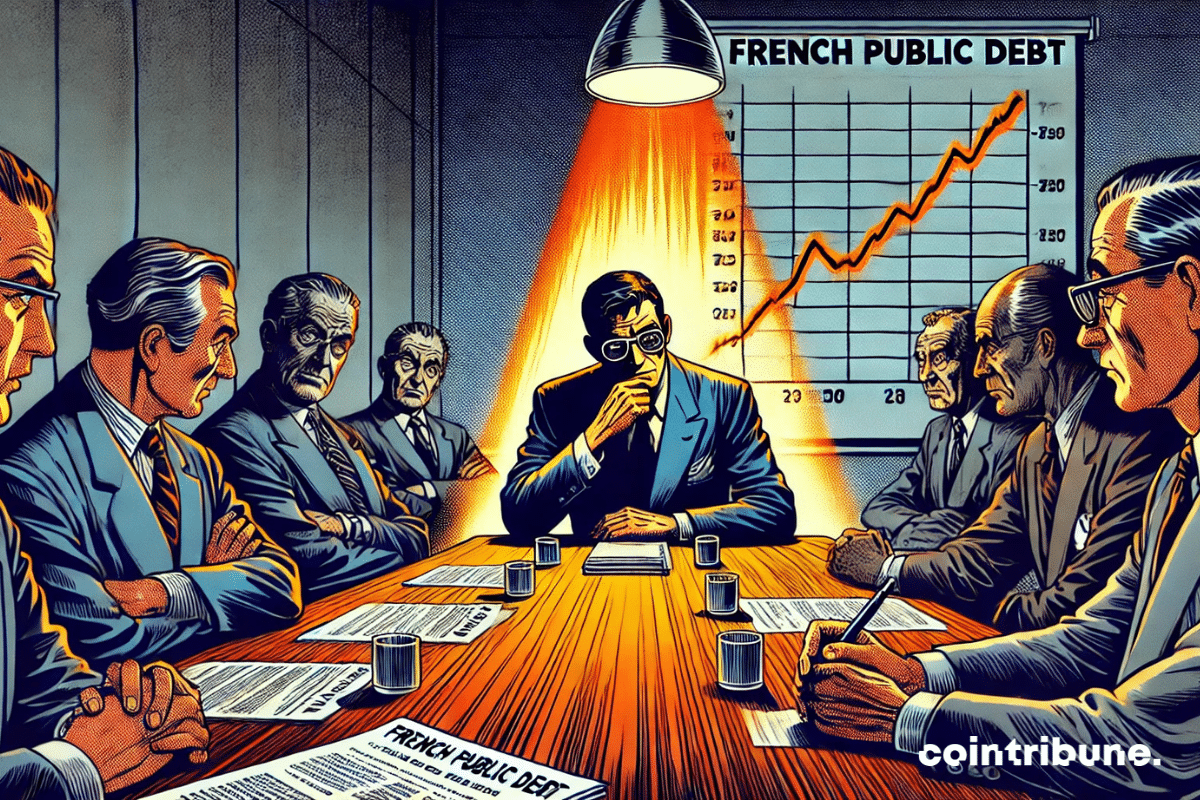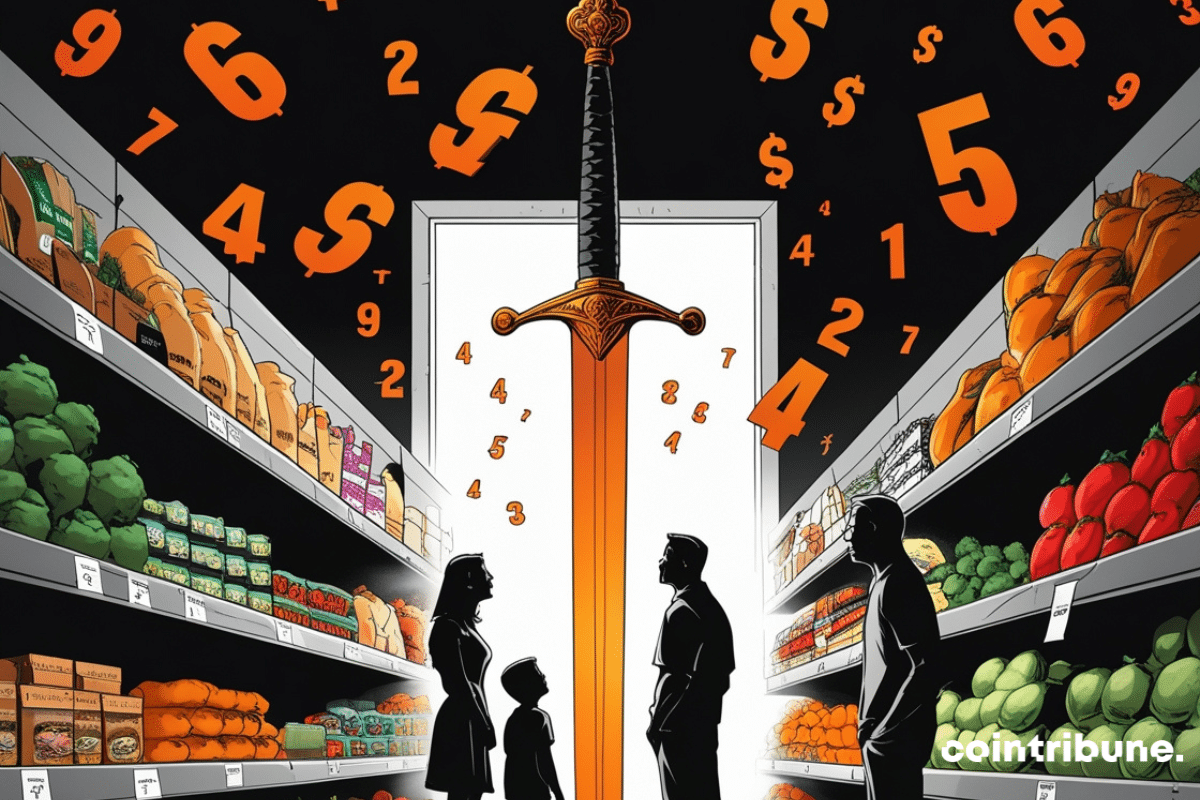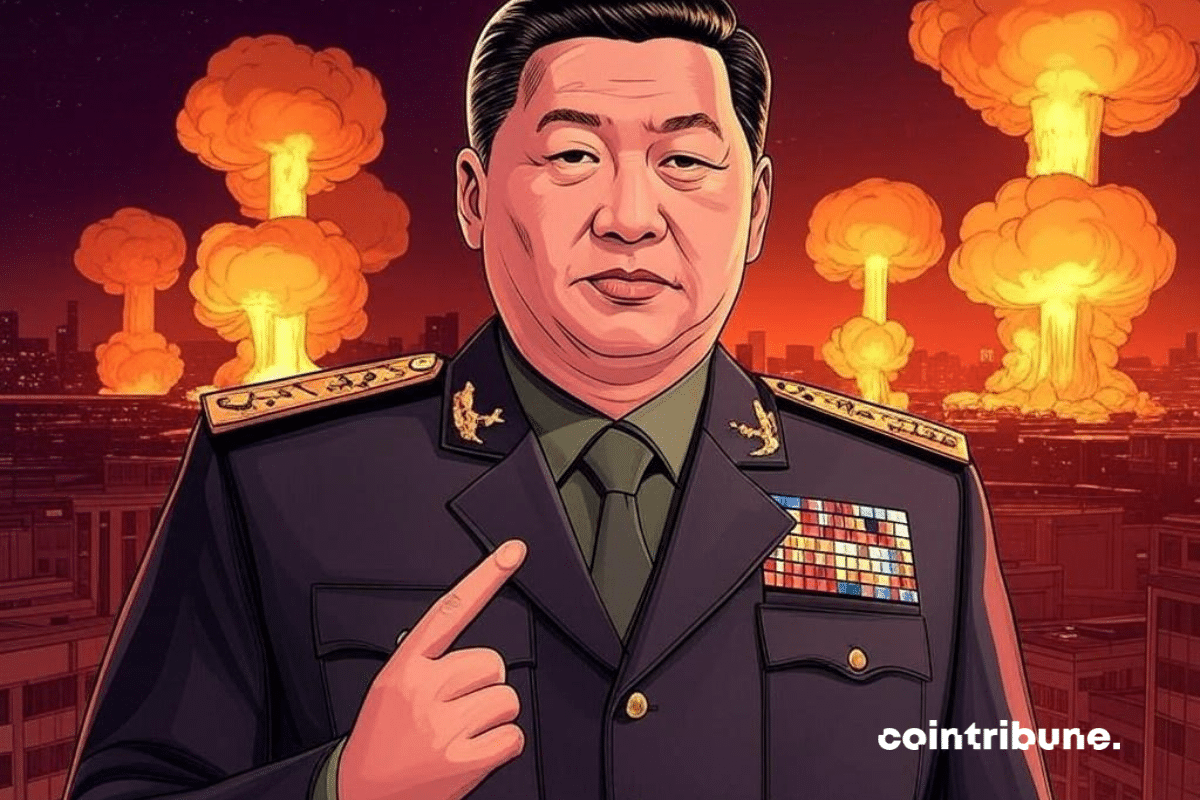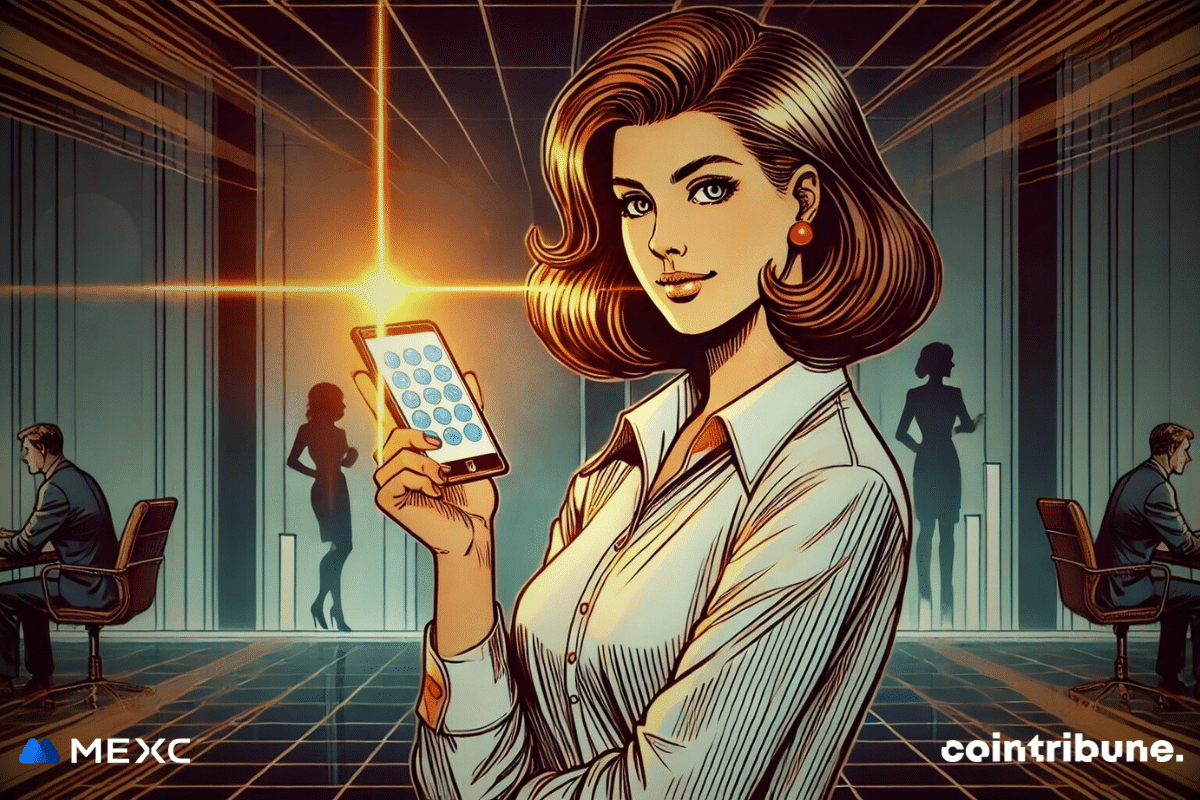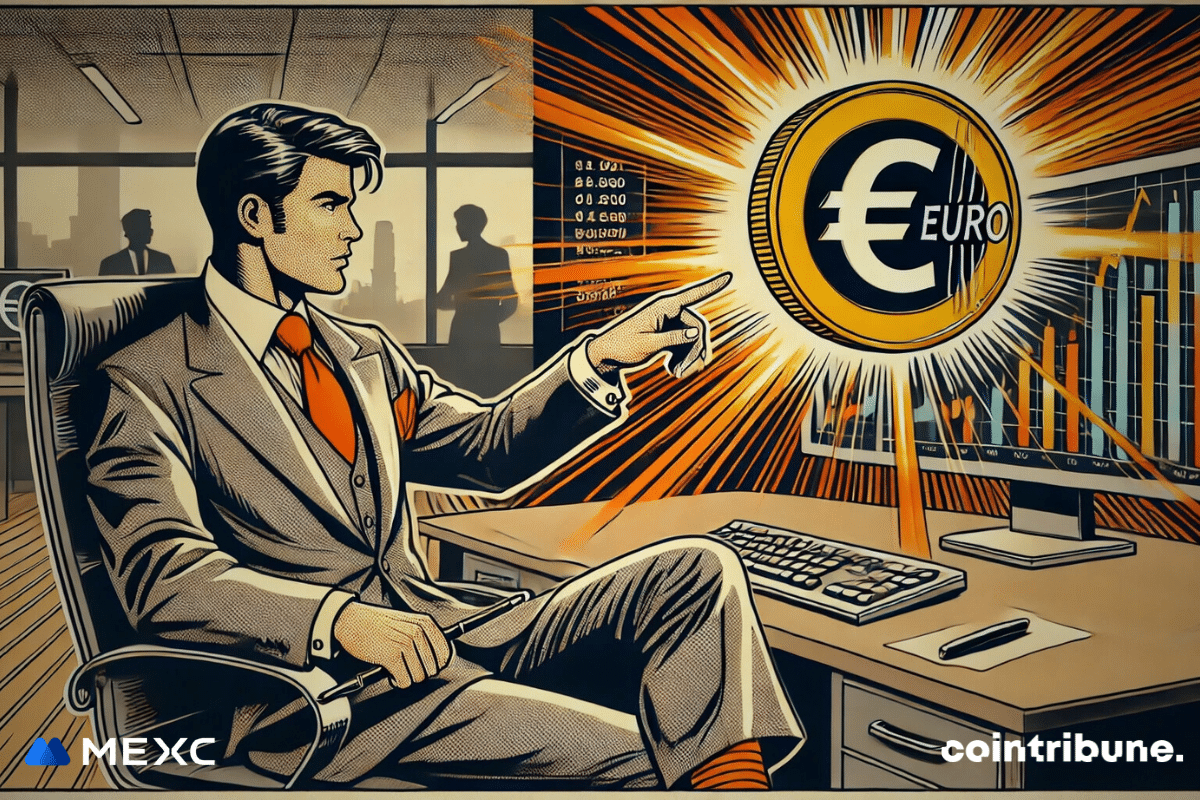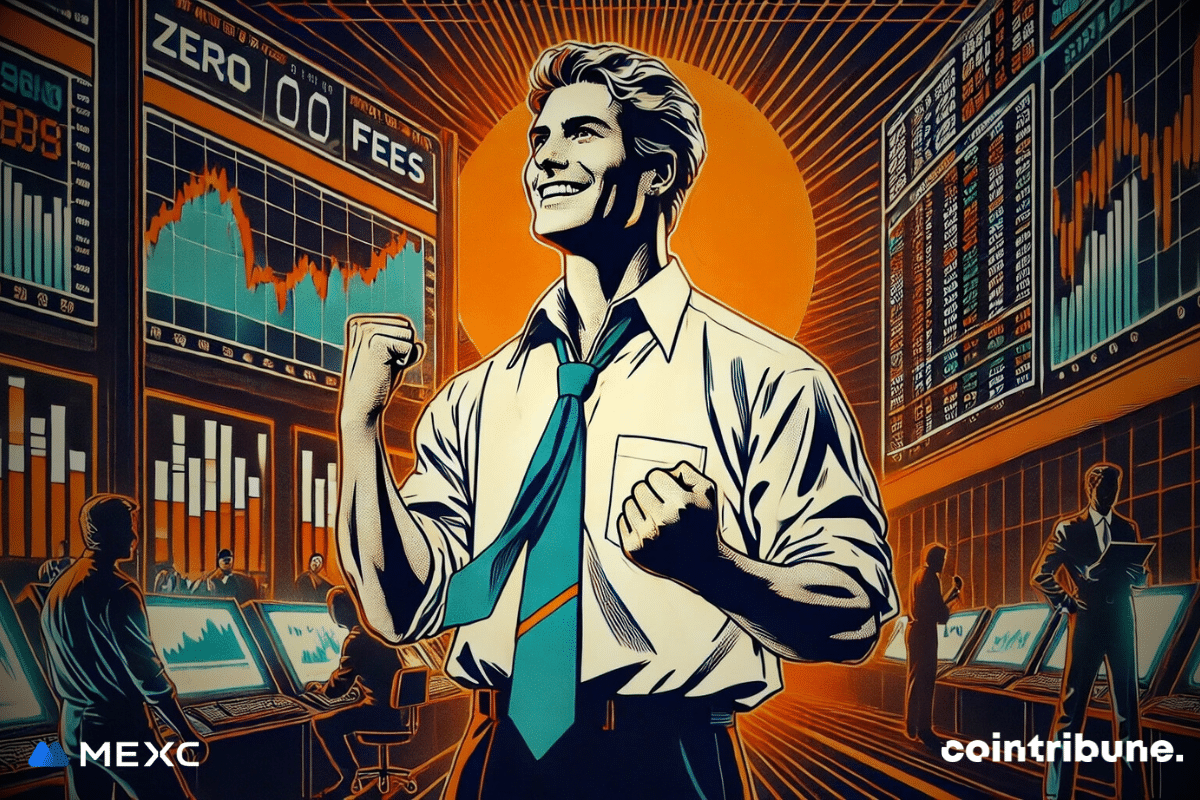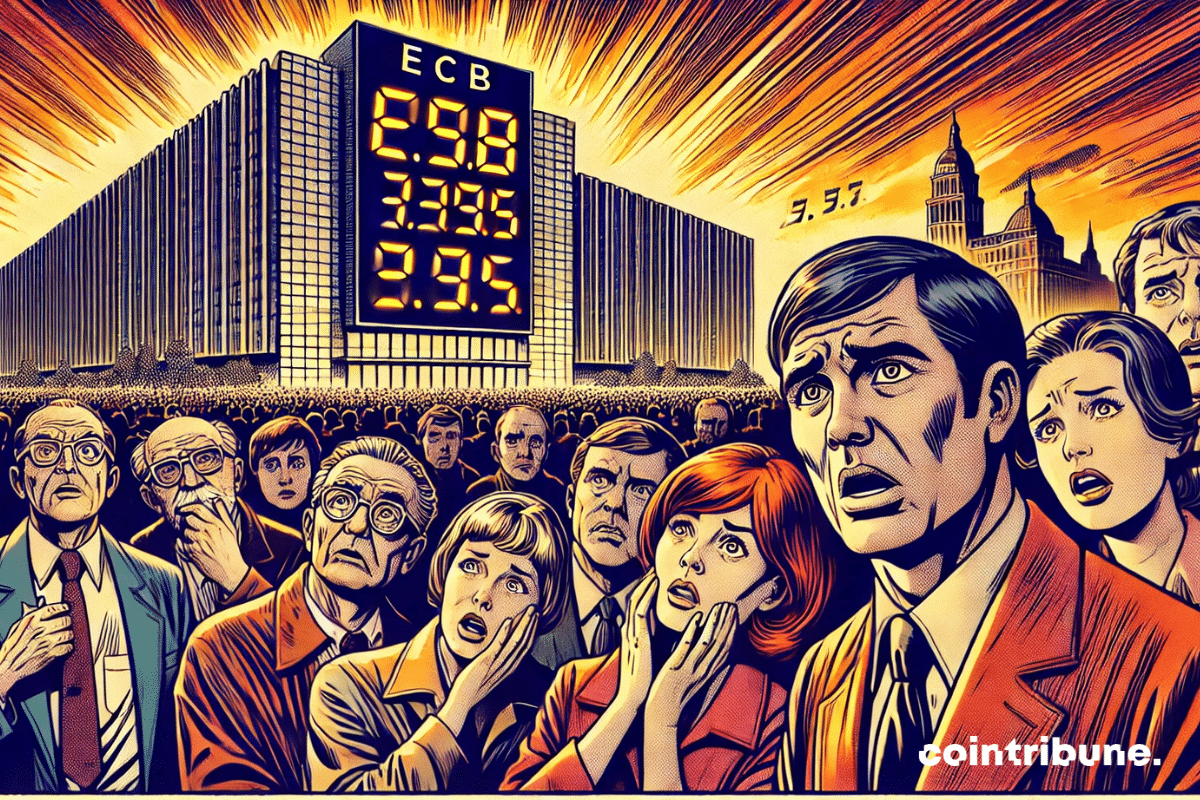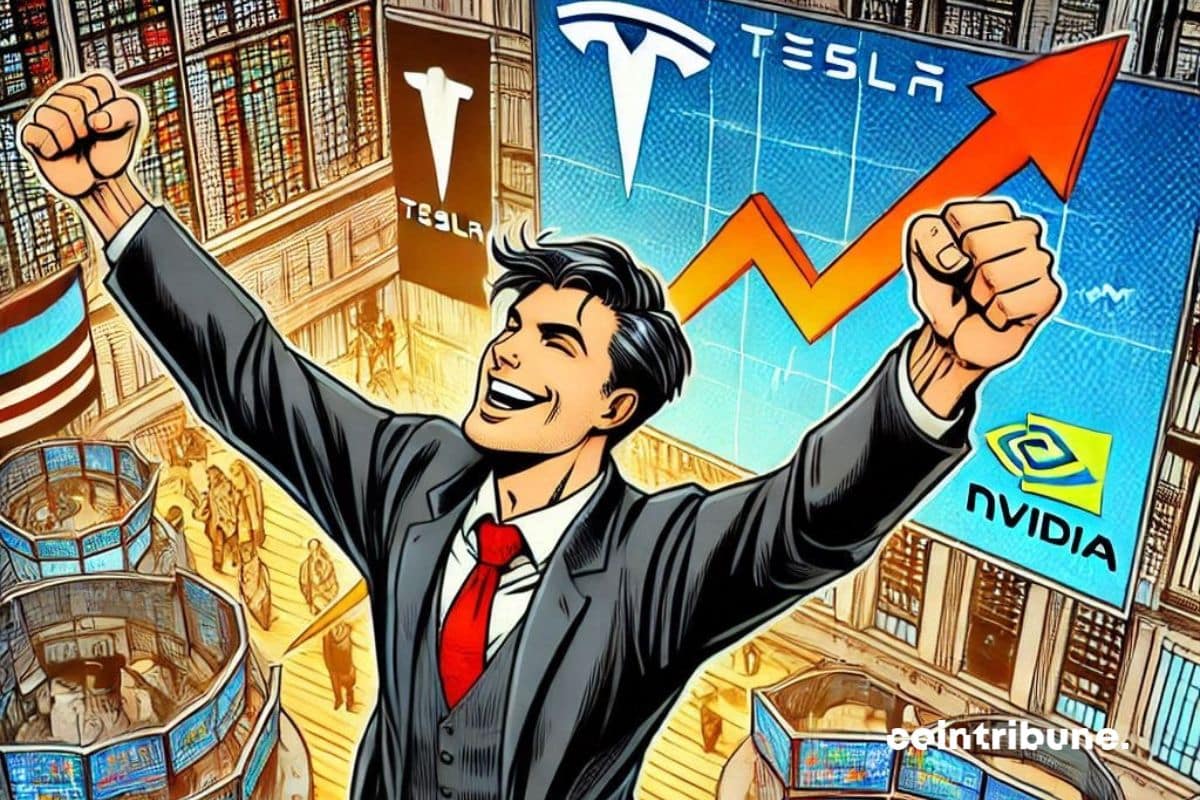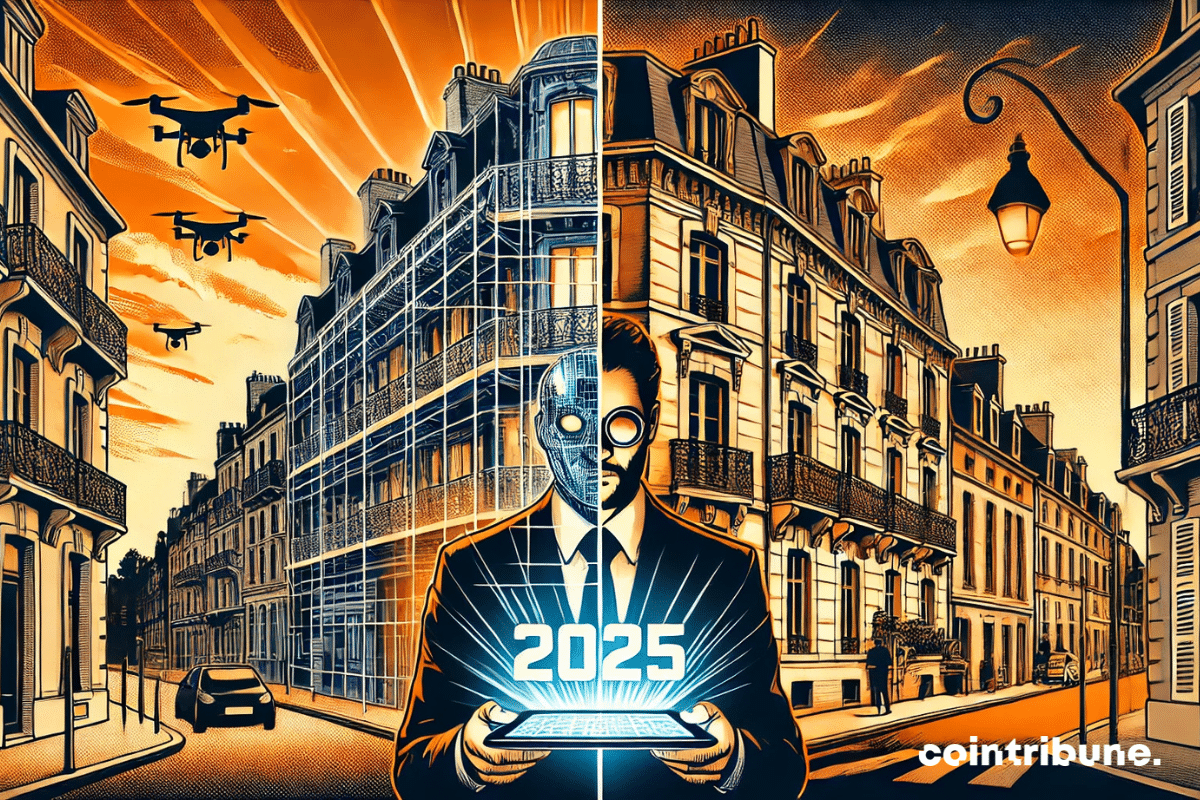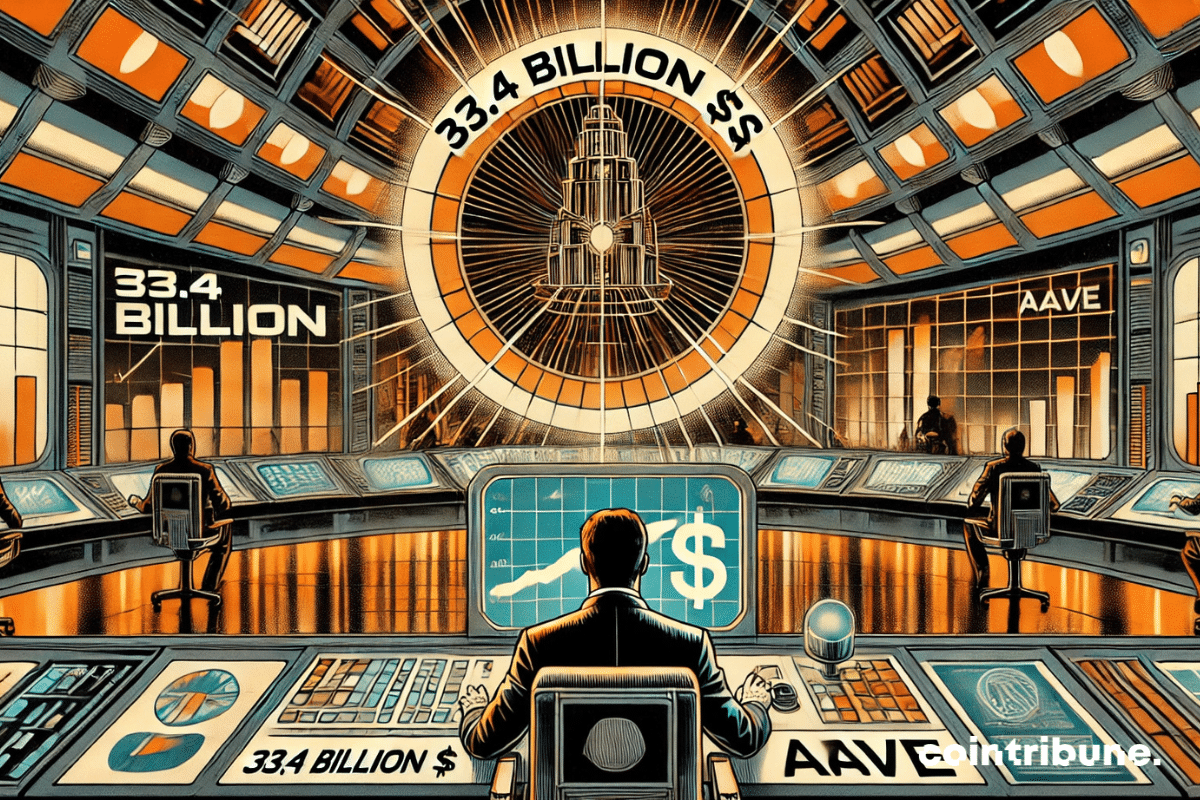The evolution of the price of bitcoin in 2025 will depend on three main parameters: macroeconomics, geopolitics, and bitcoin's ability to attract investors.
Finance News
The American stock market plunged into the red this Wednesday, as Donald Trump considers declaring a national economic emergency to impose universal tariffs. This prospect reignites fears of a new trade war, overshadowing mixed data on American employment.
The yuan stumbles, the Middle Kingdom sways. The shadow of Trump, armed with taxes, looms and revives old economic demons.
When a country imports more than it exports, its economy weakens and its dependence on external markets increases. In November 2024, France's trade deficit stood at 7.3 billion euros, which represents an improvement of 0.3 billion euros compared to the previous month. This slight reduction in the deficit is primarily explained by an increase in energy exports, which grew faster than imports. However, this improvement does not call into question the structural fragility of French foreign trade. Despite this temporary improvement, the imbalance between exports and imports remains critical. The domestic industry struggles to compete with international competition, and the trade balance remains largely in deficit. This situation raises questions about the competitiveness of French companies and their ability to sustainably establish themselves in foreign markets. Thus, the evolution of the deficit in the coming months will largely depend on the energy situation and the economic policies implemented to rectify the trade balance.
A few statements are enough to shake the markets, and Donald Trump has once again demonstrated this. An article in the Washington Post suggested that his team was exploring a more nuanced approach to tariff policy. This single premise was enough to push stock indices higher, with investors betting on a relaxation of trade tensions. However, the former president was quick to respond. In a message posted on social media, he firmly denied this information, calling it yet another attempt at media manipulation. This sudden about-face triggered a shockwave in the financial markets.
After two years of noticeable decline, the real estate market appears to have reached a turning point. According to Charles Marinakis, president of Century 21 France, the correction in prices is nearing its end, paving the way for stabilization, or even a slight rebound in 2025. In Paris, the price per square meter has dropped by nearly 10% over two years, a similar decline observed throughout Île-de-France. This correction, exacerbated by rising interest rates, has allowed sales to gradually restart. However, the market's evolution will depend on several factors, including the continued decrease in credit rates and the ability of sellers to adjust their prices to match the new expectations of buyers.
The convergence between artificial intelligence (AI) and asset tokenization is set to redefine the global financial landscape in 2025, according to Hunter Horsley, CEO of Bitwise. This major transformation should particularly benefit small businesses, paving the way for a new "long-tail capital market."
Indonesia, the largest economy in Southeast Asia, officially joined the BRICS bloc in January 2025, marking a major turning point in the reconfiguration of global economic alliances. This membership significantly strengthens the group's weight, which now represents over 51% of the world's population and 40% of global GDP.
The French state is preparing to face a year of high tension in the financial markets. With 300 billion euros to borrow in 2025, an unprecedented level of debt, Bercy must maneuver in a particularly unstable environment. The French Treasury Agency (AFT), responsible for debt issuance, faces a double challenge: ensuring the financing of the country without destabilizing the markets and reassuring increasingly cautious investors. Indeed, political uncertainty further complicates the situation. Since the fall of the Barnier government, France has been operating without an approved budget, which strengthens doubts about the country’s budgetary trajectory. A special law adopted in emergency allows for the maintenance of borrowing, but this temporary solution is not enough to dispel the concerns. In the markets, signs of instability are multiplying. The spread between French and German rates, a key indicator of investor confidence, has doubled in a year to exceed 80 basis points. This signal reflects a riskier perception of French debt and could increase the cost of financing. In this climate of uncertainty, Bercy must find the right balance. Will the AFT’s strategy, based on predictability, regularity, and flexibility, be enough to avoid an excessive rise in interest rates? With only a few days until the first auctions, pressure is mounting on financial officials, while investors are waiting for guarantees on the country’s budgetary stability.
Bernard Arnault's fortune, the French luxury magnate and CEO of LVMH Moet Hennessy Louis Vuitton, took a heavy hit in 2024, losing $31.9 billion in a single year due to the drop in stock prices.
Between a provocative Trump and an inflexible Fed, the economy wobbles. Interest rates rise, prices soar, and nerves fray.
Amid revolutionary announcements, technological developments, and regulatory upheavals, the crypto ecosystem continues to prove that it is both a territory of limitless innovations and a battleground of regulatory and economic conflicts. Here is a summary of the most notable news from the past week regarding Bitcoin, Ethereum, Binance, Solana, and Ripple.
Taiwanese youth are enjoying life as if nothing were happening. Yet, the threat of a Chinese invasion has never been more present. And when the Chinese Communist Party launches the offensive, we will officially enter a 3rd world war.
MEXC, one of the leading cryptocurrency trading platforms in the world, has unveiled its new brand identity with a catchy global slogan: “Your Easiest Way to Crypto.” This rebranding marks a significant milestone in MEXC's evolution as an industry leader, reaffirming its commitment to making cryptocurrency trading simple and accessible for all.
MEXC, one of the leading global cryptocurrency trading platforms, has enhanced its Over-the-Counter (OTC) trading service by introducing euro (EUR) support. This strategic move aims to simplify access to cryptocurrencies for European users by allowing them to purchase and trade directly with their local fiat currency.
MEXC, a leading crypto exchange, has introduced a zero-fee trading event for spot USDC pairs. This initiative allows users to enjoy 0% Maker and Taker fees, optimizing their trading strategies and enhancing profitability.
The year 2025 is shaping up under favorable auspices for the global economy, despite ongoing challenges. As recession fears fade and inflation begins to normalize, several indicators suggest a positive momentum for the months ahead.
Goodbye pipeline, goodbye windfall: under the bombs, Kiev breathes a chilling wind that extinguishes the Russian stoves and warms Europe with embarrassment.
Inflation in the eurozone continues to receive close attention as markets monitor the release of December's figures. According to FactSet estimates, consumer prices are expected to rise by 2.4% year-on-year, up from 2.2% in November. This increase, although moderate, raises questions about the path the European Central Bank (ECB) is set to take. On one hand, some investors are betting on a rapid monetary easing, convinced that inflation will gradually return to the ECB's target of 2%. On the other hand, the sustainability of underlying inflation at 2.7%, fueled by rising prices of services and food products, urges the central bank to exercise caution. As the ECB prepares for its first meeting of the year on January 30, the balance between supporting the economy and controlling prices looks particularly delicate.
On Friday, January 3, 2025, Wall Street experienced a day of gains marked by a return of risk appetite among investors. After a period of volatility and uncertainty, the major stock indices saw significant gains, reflecting renewed confidence in the American economy.
Blockchain, like a Swiss watch, measures the economy to the thousandth. Goodbye artistic blur, hello fractional wealth and disruptive promises.
The center of gravity of the global economy is gradually shifting towards new alliances. In the face of the waning influence of Western institutions, another bloc is consolidating its power. Since January 1, 2025, the BRICS have taken a new step by welcoming nine partner states. This expansion, decided at the Kazan summit in October 2024, reinforces their political and economic weight and broadens their grip on emerging markets. Now, the organization represents 51% of the global population and generates 40.4% of global GDP in purchasing power parity.
In 2025, China continues to demonstrate its resilience under international economic pressures, particularly those exerted by the future Trump administration. Despite attempts by the new American president to hinder China's economic rise, it persists in its openness, marking a significant victory in the war between the two superpowers.
As digital innovations profoundly transform our habits, Elon Musk is preparing to take a significant step with the launch of X Money. This payment system, directly integrated into the X platform (formerly Twitter), could redefine the standards in the realm of digital payments. A recent code leak, revealed by a researcher, has reignited rumors of an imminent launch, well ahead of the officially announced date for this year, 2025. If this information is confirmed, X Money promises to introduce unprecedented features, particularly the potential support for cryptocurrencies like Bitcoin and Dogecoin. Through this project, the X platform aims to become a key player in digital transactions, raising questions about its economic and regulatory impact.
Since January 1, 2025, the French real estate sector is entering a new era. The changes go beyond a simple revision of previous rules. They reflect a political will to strengthen ecological requirements and adapt the tax framework to an uncertain economic context. The ban on renting energy-rated G housing, for example, embodies this priority given to the energy transition. At the same time, major fiscal upheavals, such as the end of the Pinel scheme or the postponement of the Zero-Rate Loan, are redefining incentives for investors and households. Finally, the continuation of the "anti-Airbnb law" and the stability of notary fees complete this picture of reforms, where each measure shapes the delicate balance between the expectations of property owners, the needs of tenants, and environmental imperatives. These adjustments, far from being anecdotal, herald a profound transformation of the real estate market.
Decentralized finance (DeFi) continues to demonstrate its potential, and Aave is today one of the most eloquent examples of it. Indeed, the platform has reached $33.4 billion in net deposits, surpassing the record levels of 2021, which marked a major turning point for the crypto sector. This staggering figure is not just a simple statistic, but a reflection of an ever-evolving dynamic. The DeFi ecosystem, driven by technological innovations and growing adoption, is transforming into a credible alternative to traditional financial institutions. In this context, Aave is redefining standards by diversifying its markets and strengthening its offerings, attracting both investors and developers. This performance illustrates the platform's robustness, but also the growing maturity of a sector in search of expansion and security.
In 2025, Americans anticipate a rise in the stock markets and an intensification of international conflicts. This duality could influence financial and crypto markets, making the current year both promising and uncertain for the United States.
Bitcoin is Donald Trump's plan B if he fails to persuade the BRICS to stop their rebellion against the dollar.
The BRICS have been presenting themselves for several years as a credible alternative to hegemonic economic blocs such as the G7. In this context of increasing rivalries among powers, Russia has taken steps to expand this alliance. It then invited Saudi Arabia and Turkey to join its ranks. Moscow hoped to strengthen the bloc's influence on the international stage and to face the pressures from Western economies. However, these efforts encountered a rejection. This setback illustrates the divergent interests among these nations, as well as the challenges that the BRICS face in expanding their circle of influence in a world where geopolitical balances are becoming increasingly complex.
Bitcoin is Donald Trump's plan B if he fails to persuade the BRICS to stop their rebellion against the dollar.
